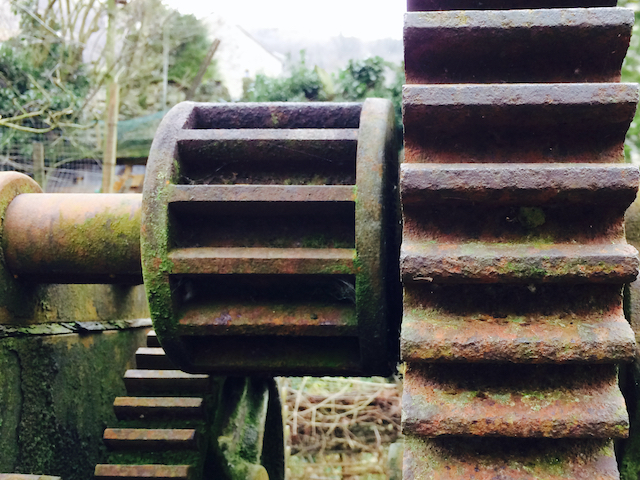Across all the of the projects I’m involved with we are working out what can go ahead and what must be postponed. A significant factor in whether to proceed is whether the activity can go ahead virtually. While the ability to move online is a blessing for business and job continuity, I think it represents an irriversible step for industry and society away from the phyical to the virtual – a click of the ratchet – that will have long-lasting impacts on our freedom and how we interact with other people.
My dictionary tells me that a ratchet is a device in which a toothed rack…is engaged by a pawl to permit motion in one direction. In my analogy the rack represents progressively greater technological adoption, each tooth the introduction of a digital tool that gradually replaces a physical one. Examples of teeth are online shopping replacing shops, contactless payment in place of cash, chat rooms replacing chat in the street, AI diagnosis replacing a visit to your doctor. virtual meetings instead of phyiscal workshops
Taken at face-value these technological advances are a mircale cure for the disease of forced isolation. But when the emergency is over the widespread adoption comes at a cost. Shopping online, we are much more vulnerable to behavioural manipulation than on the high street and we don’t meet other humans on the way. Contactless payment is germ-free payment but the loss of cash is the loss of freedom to pay for anything without being tracked. Meeting friends online represents an erosion of the commons – we now meet in private online spaces owned my social media and video conferencing services. Using AI tools to assist in medical check ups represents a transfer of medicine to the cloud in which our national health service is much more vulnerable to commerical assault.
Ideally we could slide the rack back the other way when there is no-longer the need for these virtual versions of real life. Unfortunately I foresee three pawls dropping in between the teeth of digital technological progress that prevent this reversal. Their click is so quiet that we barely notice the ratchet in operation.
The first click is habitualisation. As more of our experience of living moves online, we become used to this more virtual existance and start to forget what the more phyiscal way of doing things was.
The second click is risk aversion. While I am sure that right now many people in self-isolation can’t wait to make contact with other humans as soon as they can, from a business or organisational point of view, activity planned to take place in the virtual space is less risky than an activity in the physical. With the risk of a virus relapse once people come out of self-isolation, many businesses will be holding back on committing to any work in the real world for a good six months to a year. That time frame is long-enough for many businesses to reimagine their offering as a virtual service if possible, and they may discover that they can deliver their services for much less online, which brings us to the third click.
Click three is commercial interest, the more obvious face of which is that delivering services online may just be cheaper. Austerity-battered councils may find that they can no-longer justify re-opening libraries now that they have tested running lending services online. But the deeper, more malign face of commerical interest is that there is a huge amount of money to be made from us spending more time in front of our screens and devices, from data mining, to selling advertising to behavioural manipulation for commerical gain. With so much of our online experience mediated by a small number of tech firms, every click of the mouse is another click of the ratchet away from freedom and our free-association with other people.


Leave a Reply